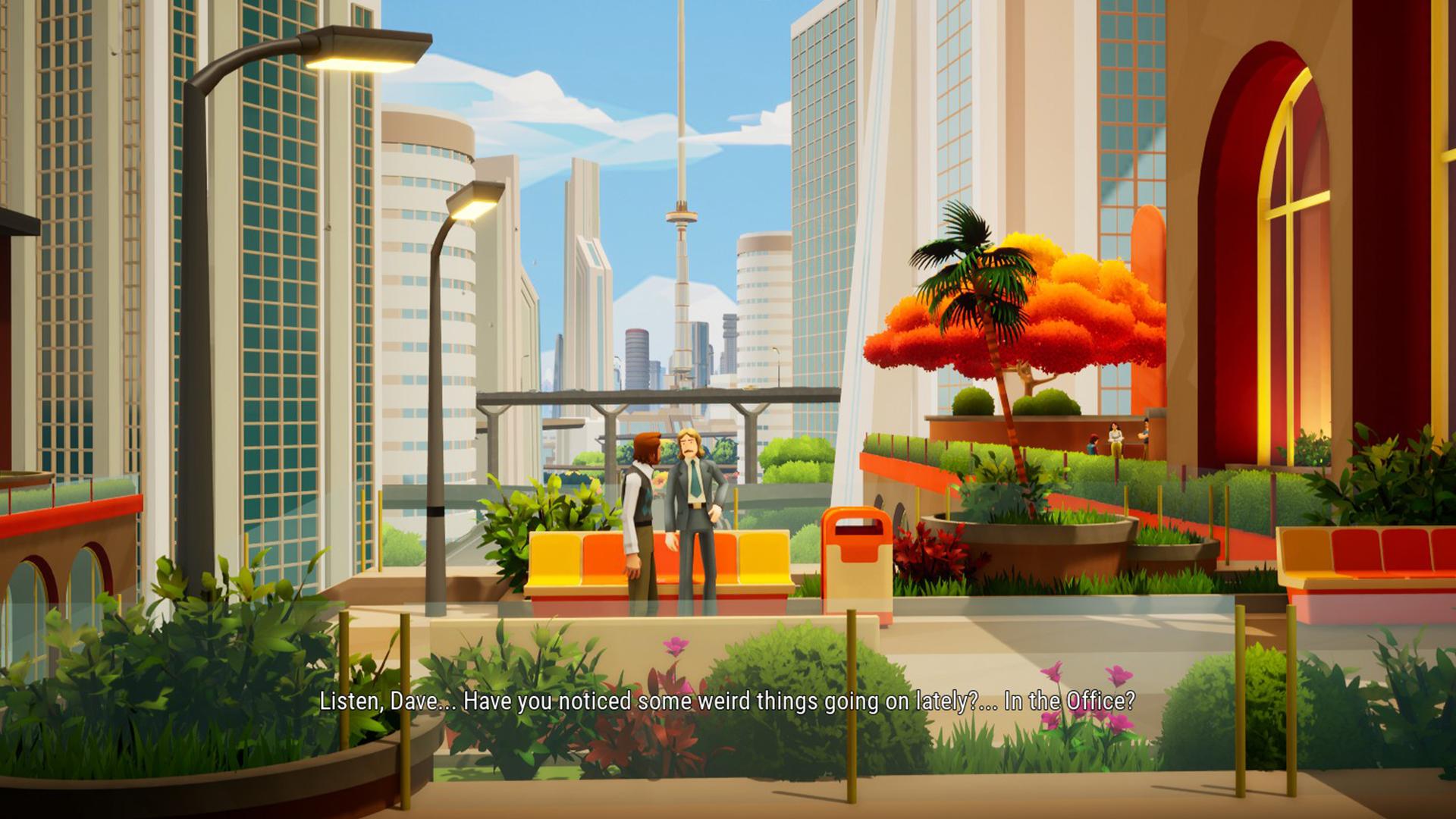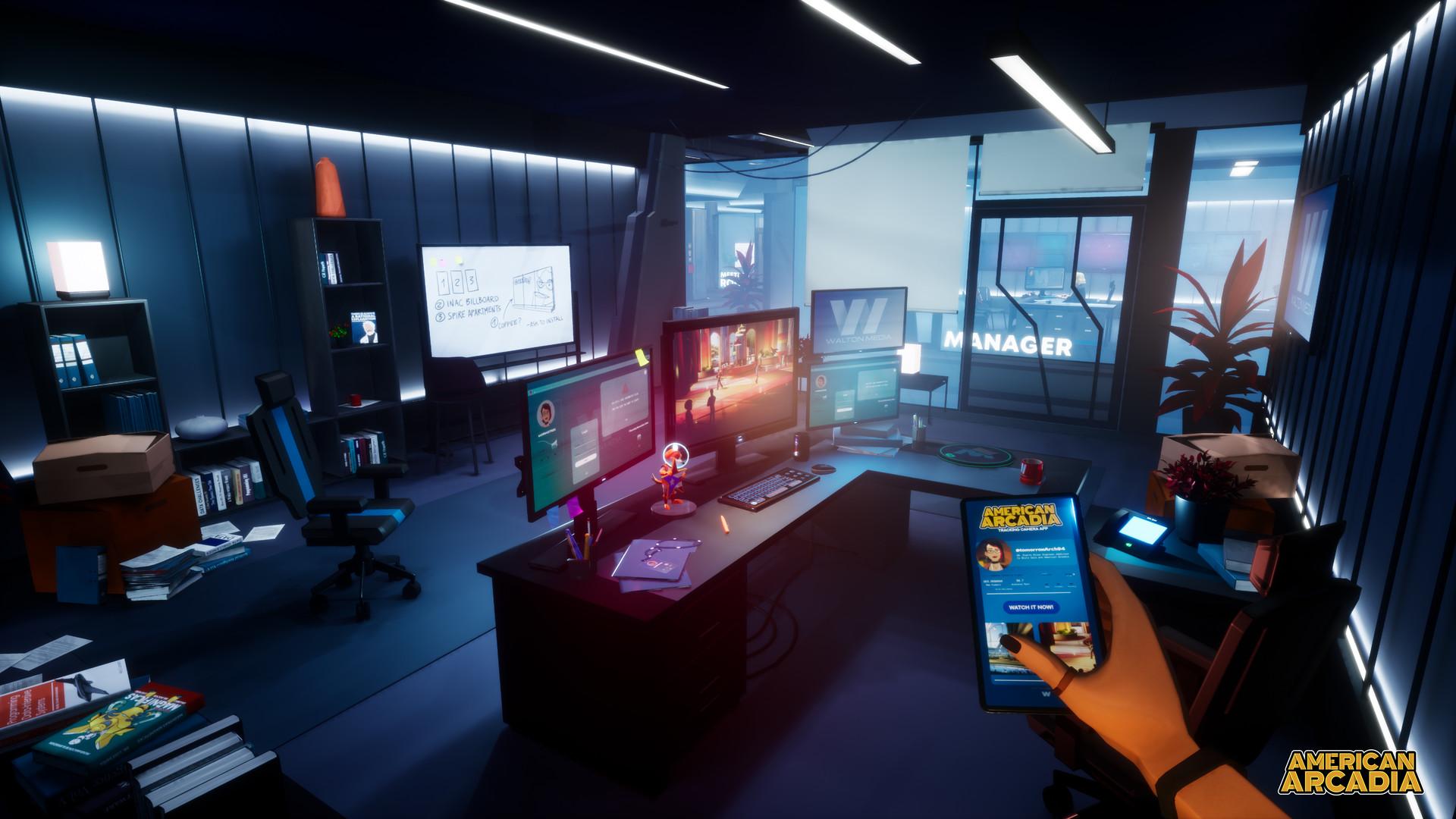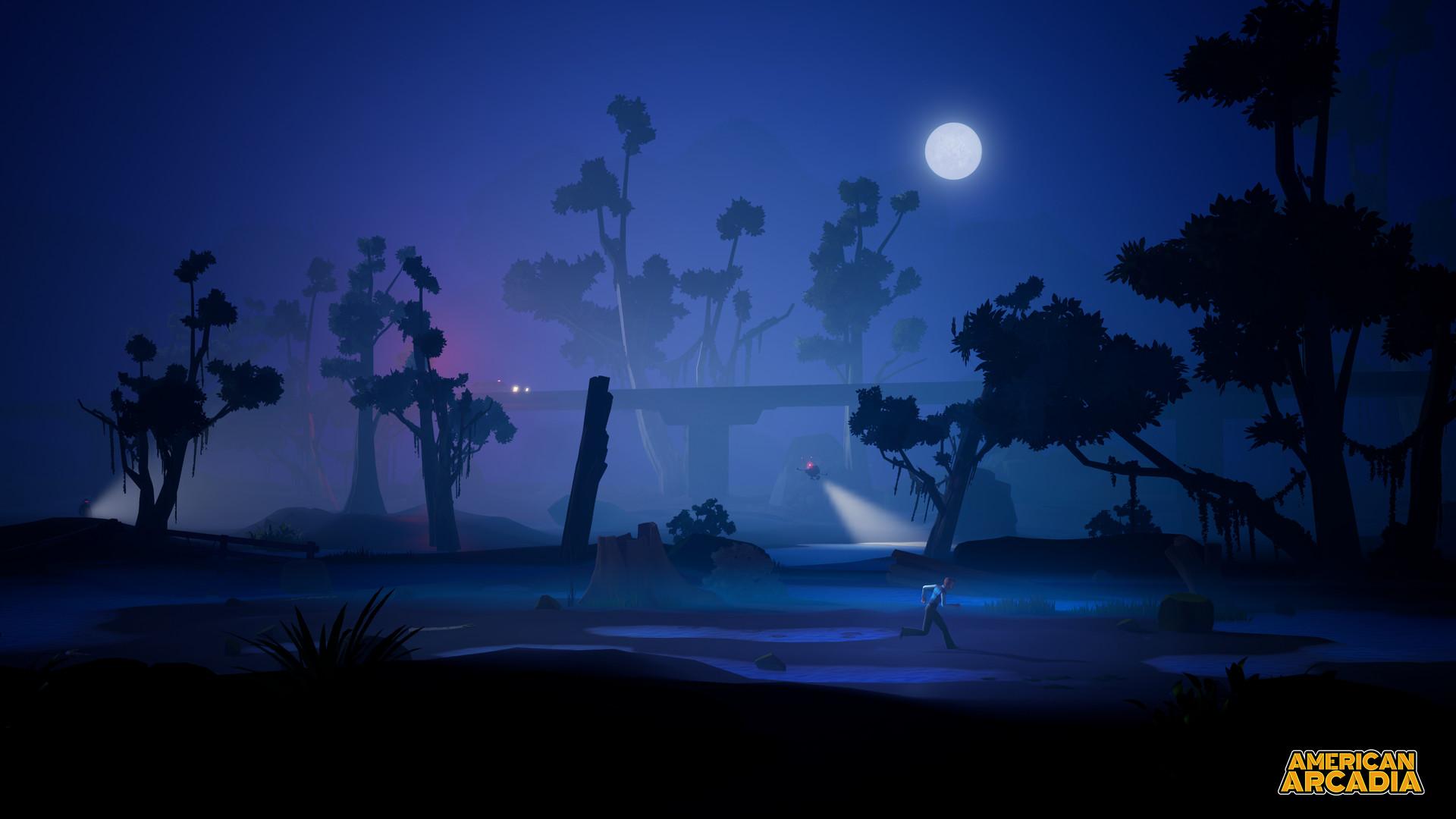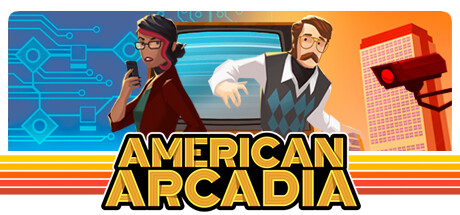Reviewer's Note: Certain gameplay & story assessments require I touch on SPOILERS to some extent. Although I try to keep them limited, read on at your own risk.
Eventually morphed into a
meme, the original Tweet about a tech company that's "...created The Torment Nexus from the classic sci-fi novel Don't Create The Torment Nexus" can't help but come to mind for
American Arcadia. Movie/TV executives are in different industries, yet they swim in similar waters with how they'll enthusiastically exploit concepts critiqued by the original creatives. So, in spite of its artificial 1970s setting and liberally borrowing from a 25-year-old film, Out of the Blue's sophomore effort still feels timely in today's culture. For its time,
The Truman Show was part of that 90s milieu of living in a curated world (see also:
The Matrix &
Pleasantville) challenging its protagonist into a choice between quaint artifice and true freedom. Like
this team's first effort, the ways in which that's thematically and mechanically explored feel just as relevant as ever.
Alfredo González-Barros' script is open about Peter Weir's influence too; references abound in one-off gags and integral plot points. Of course, the main disparity now is that all Arcadia citizens are in this hermetically-sealed glass dome without their prior knowledge or consent. Which means that all three-thousand-plus Arcadians, not just nebbish protagonist Trevor Hills, are unknowingly starring in their own movies – with fluctuating viewerships at all times. With the help of hacktivist Angela Solano, who's working on the inside at Walton Media, Trevor eventually realizes his stale middle-management existence isn't racking up the numbers. The company's solution: quietly "disposing" of him with a fake getaway trip.

What follows is a familiar action-adventure template that switches between – and occasionally combines – 2.5D platforming and first-person puzzle-solving. The majority is spent with Trevor navigating a brighter Playdead-esque platformer, with the verisimilitude of a retro 70s aesthetic: old-timey TVs, cars, attire, the works. That Playdead reference is deliberate too, as Out of the Blue utilizes a similar cinematic language, penchant for moving-box puzzles, and over-zealous attitude towards fail states if getting slightly off-script. Since the context of Trevor's conflict is communicated through television, tenser or more intimate moments are framed in a way that's – funnily enough – fit for broadcast.
Of course, these chases would go nowhere fast without Angela's help. You're always nudged about her necessity with a little camera UI prompt, which then shifts perspective to a physical CCTV camera watching Trevor within Arcadia. It begins with rather simple commands: unlock a door, activate a car alarm to distract guards, and so on. But expectations rise as time goes on. Setting off steam traps and moving crane arms must be properly timed to give Trevor a chance of beating Interceptors. It's not all chases, though. Sometimes the demands are geared towards flipping between multiple cameras to shift crates or stealthily evade prying eyes. Most cases are relatively breezy, but certain multi-step sequences feel a bit too fiddly and clumsy in their visual communication to succeed the first time through.

When the camera peels back away from the broadcast and into Angela's eyes, both the perspective and era changes. Instead of navigating around 70s-styled backdrops, you're in the modern day, looping camera footage to disguise her sleuthing into the IT head's office, solving a tile-shifting puzzle, or accomplishing a brainteaser meant as a substitute for hacking. Even though they fluctuate between some of the best challenges to… mildly aggravating, they serve as both a great pacing mechanism and a tangible way of reinforcing their teamwork. Because of the groundwork laid through gameplay and dialogue, their occasional separation from each other enhances their bond.
This is perfectly encapsulated in the set pieces where one's facing a distraction while still on the line. One of Arcadia's standout moments is controlling Trevor through Angela's computer screen while she's simultaneously interrogated by the security head with psych-profiling questions. Even if you're skillful at juggling both things at once, it's worth getting one fail state just to witness the ensuing fallout. Even when in the passenger seat, Trevor's guidance is instrumental in maintaining Angela's cover. A rare few of these bigger moments also rely a bit too much on trial and error, but at least ample checkpoints sustain momentum.

Of course, the enthusiasm for this pair's adventure comes from the creativity in its mechanical concepts and script. Yuri Lowenthal's Trevor and Krizia Bajos' Angela have contrasting temperaments that capture a great yin and yang. Granted, some of the dialogue can be tacky and overwrought, but most of it makes perfect contextual sense here. Trevor's "aw shucks!" innocence is intentionally emulating Jim Carrey's Truman whereas Angela's modernized, movie reference-laden dialogue acts as a useful funnel for us to understand this world. And since so much attention in this six-hour title is spent on Angela on the outside, it's also met with more intricate world-building to explain the plausibility of this sealed-off society.
It's not without fumbles, however. Even though it's a bigger juggling act, the overreliance on interspersed present-day interview segments can sometimes deflate enthusiasm or intrigue; it's used to great comedic effect on occasion, but sometimes it'll prime you for something that seems better left as a surprise. Some may be tempted to emphasize its most glaring inspiration – which is true – but I'd argue Arcadia's prescience has a longer tail than The Truman Show. The latter was released near the end of television's ubiquitous hold over a mass audience, whereas the former, especially its impressive finale, properly incorporates the internet and streaming during its continued ascent.

It's rather fitting, then, that American Arcadia ranks among the most binge-able adventures of the year. Even if what it has to say about surveillance and modern-day entertainment treads familiar ground, a final act shift provides a fresh examination that its precursors didn't capture. Beyond any commentary or prescience of its inspirations, American Arcadia would still work as it properly captures an aesthetic, tonal, and mechanical consistency between its two eras and gameplay templates. Paired alongside insightful social commentary, though, and Out of the Blue succeeds in blending a compelling narrative and game.
Contractor by trade and writer by hobby, Lee's obnoxious criticisms have found a way to be featured across several gaming sites: N4G, VGChartz, Gaming Nexus, DarkStation, and TechRaptor! He started gaming in the mid-90s and has had the privilege in playing many games across a plethora of platforms. Reader warning: each click given to his articles only helps to inflate his Texas-sized ego. Proceed with caution.
This review is based on a digital copy of American Arcadia for the XS
Read more about our Review Methodology here








 (Add Date)
(Add Date) (Add Date)
(Add Date) (Add Date)
(Add Date)












